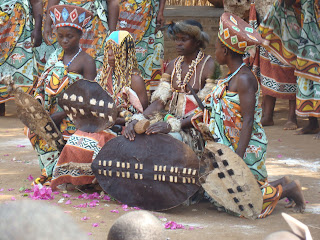One article caught my eyes in the Sunday paper. A chief was decrying "Western culture", describing it as a threat to Malawian culture. What was this "Western culture" that caused his constipation? With interest did I realise that he was referring to proposals for production of marijuana to replace tobacco, and legalization of commercial sex. He was then listing other "ills" coming from outside, and ending with ..."...the coming in of democracy has eroded everything".
These lamentations come in the midst of a national struggle to rid the country of child marriages, trafficking of persons for child labour, and attacks on albinos for the magical power of their body parts... These traditions are said to be inherited from Malawian history. What is it about this culture that is drastically better than "Western culture"?
It struck me how we very often reflect on "us" and "them. We contrast the worst in "their culture" and romanticize about "our culture", and do not relate the best or worst in the respective cultures with each other. We make connections that probably are not relevant. In this case the blame was on introduction of democracy... How often did we not hear the reverse story about the "savage natives" of Africa that needed to be saved from themselves?
Living in Malawi gives me a golden opportunity to confront my own stereotypes when encountering stereotypes presented by others. So far during my stay in Malawi I have experienced a rich culture which has been influenced by local and regional history... and greatly flavoured by other cultures, including "Western culture". Nuances are found between rural and urban areas, between age groups and men and women. The Malawian culture is not what it was yesterday, and will be different tomorrow compared to today. I am fascinated by the different flavours of culture that surround me!
Talking about flavour of culture... and nature. My newspaper reading was enjoyed amidst colourful vegetation in a beautifully trimmed garden, credit our gardener Gani. Just see for yourself!











